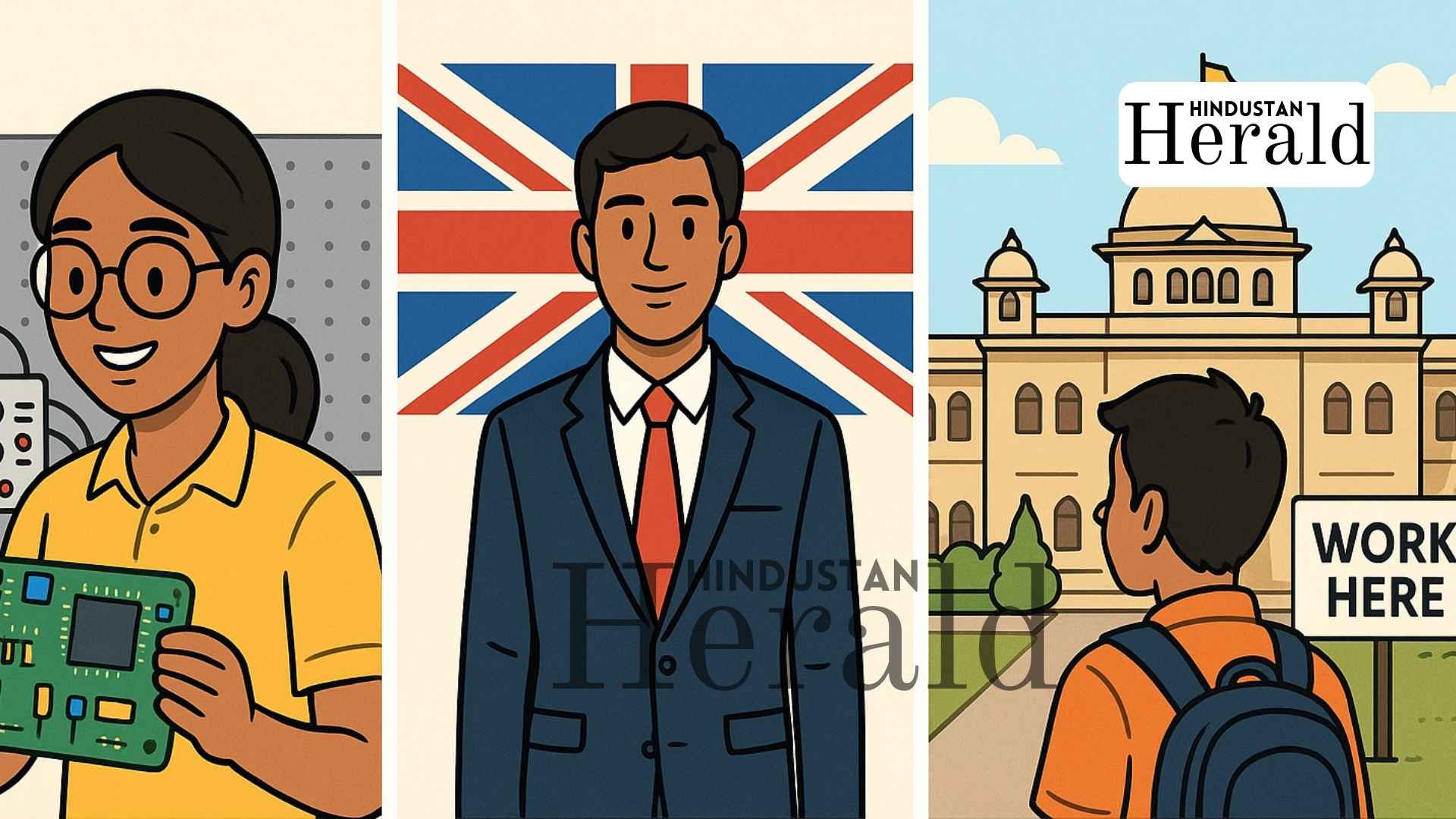Lucknow, August 23: In the thick of admission season, when most students are juggling fees, forms, and frayed nerves, a handful of announcements have landed with real weight some offering new chances, others tightening the rules. For students in Uttar Pradesh and nearby states, the latest developments in scholarship policies feel a little like a mixed bag: there’s opportunity, sure, but also a clear shift in tone. Governments want results. And they’re starting to ask for something in return.
Five UP Students Will Get A Free Ride To The UK But Competition Will Be Brutal
Let’s start with the flashiest headline: UP is sending five students a year to the UK on a fully funded scholarship. It’s called the Chevening–Bharat Ratna Shri Atal Bihari Vajpayee Scholarship, and it’s backed by both the state government and Britain’s Foreign, Commonwealth & Development Office (FCDO). The MoU has been signed, the numbers are in, and the offer is huge ₹45 to ₹48 lakh per student, covering tuition, living, research, even the airfare.
Only five slots though. Total. Per year.
According to The Times of India, the scholarship will run for three years starting 2025–26. The state pays nearly half, and the rest comes from the UK government. In terms of international education policy, that’s a big deal. It also means that these five students won’t just be seen as high achievers they’ll be ambassadors, expected to bring something back. Whether that’s leadership, public service, or just fresh thinking.
The bar? Very high. And for most, completely out of reach.
AICTE’s Pragati Scheme: A Quiet Lifeline For Young Women In Tech
Then there’s the AICTE Pragati Scholarship. It doesn’t make the headlines like the UK scheme, but it’s quietly helping thousands of young women chase engineering and technical dreams fields where they’re still in the minority.
This year’s scheme, as reported by Navbharat Times, offers ₹50,000 a year to first-year female students in AICTE-approved institutions, extendable up to four years. That money can go toward anything from hostel fees to new equipment to just easing the pressure on families scraping to fund an education.
But this isn’t charity. There’s an eligibility bar family income limits, course type, and performance. It runs through the National Scholarship Portal, and like everything else now, the application window won’t wait.
For a lot of young women, especially in small towns, this is their shot. Not flashy. Not foreign. Just a real shot at a degree that might change everything.
Rajasthan: If You Take State Money, You Work For The State
Now here’s where the tone shifts.
The Rajasthan government has changed the rules for its Swami Vivekanand Scholarship one of the country’s better-known schemes for students pursuing higher education abroad. And they’ve made it clear: if you take state funds, you owe the state something back.
From now on, anyone using this scholarship to study overseas must return and work in Rajasthan after their course. That’s non-negotiable. The number of foreign study slots has also been slashed from 350 to 150, as reported by The Times of India. The leftover 200 spots have been reallocated for domestic study.
It doesn’t stop there. While studying abroad, recipients will be expected to submit progress reports and even take on government-assigned tasks things like analysing public schemes or writing research reports. It’s a big shift. One that turns the scholarship from a no-strings grant into a kind of public-private contract.
And yes, if you fail to comply? You could lose the support mid-course.
It’s fair in one sense public money should come with accountability. But for many students, the whole point of going abroad is to explore, maybe settle, or just figure things out without a clock ticking in the background.
More Opportunity, But Fewer Free Rides
The message across all three updates is pretty clear: scholarships are no longer just about need or merit. They’re about outcomes. Governments state and central want returns. That might be in the form of community work, regional loyalty, or just hard proof that the money is being used well.
UP’s UK scheme is generous, but razor-thin in chances. Rajasthan’s move is more guarded protecting public investment but limiting personal freedom. And AICTE’s Pragati, while still open, reminds us how critical it is to look beyond the top 1% when planning educational reform.
For students, especially those from Uttar Pradesh googling “scholarship UP” late at night, the choices are narrowing even as the doors appear to open.
If you want to go abroad? Know the obligations. If you want a shot at engineering? Move fast. And if you’re hoping to stay free of red tape well, those days are fading fast.
This isn’t the old idea of scholarships as gifts. This is policy with teeth. And whether that’s good or bad depends entirely on where you’re standing.
Stay ahead with Hindustan Herald — bringing you trusted news, sharp analysis, and stories that matter across Politics, Business, Technology, Sports, Entertainment, Lifestyle, and more.
Connect with us on Facebook, Instagram, X (Twitter), LinkedIn, YouTube, and join our Telegram community @hindustanherald for real-time updates.
Regional journalist bringing grassroots perspectives and stories from towns and cities across India.






